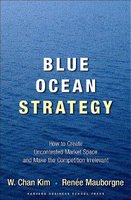J.W. Atkinson: “achievement is 50% ability and 50% drive”
To a certain degree each person has specific needs, drives and ambitions.
Once satisfied basic needs according to Maslow´s pyramid, there are some “extra” needs that enables employees to be ready to contribute above and beyond their call of duty.
Most of these needs , as well as aspirations and expectations are unexpressed and here is where a creative leader has to develop some kind of a detecting mechanism that enables him to better recognize and understand these “ extra wishes “.and aim to respond at them as we do in regards to satisfying our customers needs.
A first step could be not to brand people under a generic category of “employee”, but to treat them as human partners.
We must recon them as human beings with individual needs, drives, characteristics and aspirations.
Changing habits involves both knowing how (learning) and wanting to (motivation). It is important to see that learning is different from performing.
In terms of how far we get in life--how much we accomplish--motivation may be just as important if not more important than learning. A common barrier to accomplishing many goals in life is not wanting the goal enough to give it the necessary try, therefore it is vital to coach our “human” business partners by giving the necessary confidence boost providing them with sufficient quality time, energy attention, help advice, mentoring and support.
To a certain degree each person has specific needs, drives and ambitions.
Once satisfied basic needs according to Maslow´s pyramid, there are some “extra” needs that enables employees to be ready to contribute above and beyond their call of duty.
Most of these needs , as well as aspirations and expectations are unexpressed and here is where a creative leader has to develop some kind of a detecting mechanism that enables him to better recognize and understand these “ extra wishes “.and aim to respond at them as we do in regards to satisfying our customers needs.
A first step could be not to brand people under a generic category of “employee”, but to treat them as human partners.
We must recon them as human beings with individual needs, drives, characteristics and aspirations.
Changing habits involves both knowing how (learning) and wanting to (motivation). It is important to see that learning is different from performing.
In terms of how far we get in life--how much we accomplish--motivation may be just as important if not more important than learning. A common barrier to accomplishing many goals in life is not wanting the goal enough to give it the necessary try, therefore it is vital to coach our “human” business partners by giving the necessary confidence boost providing them with sufficient quality time, energy attention, help advice, mentoring and support.


